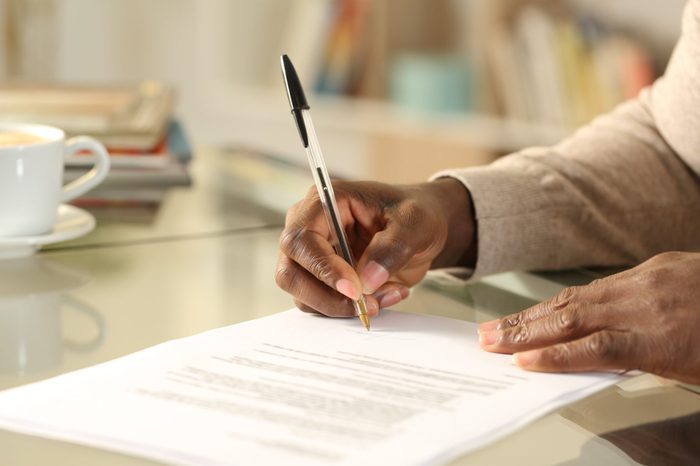Do You Pay a Security Deposit Before Signing a Lease?

Moving into a new place? Get ready to pay the security deposit. An expert explains why it's required and when you need to pony up the cash.
Security deposits. I’ve paid them, collected them, returned them and once, I even lost one (hey, I was young!). If you’re moving into a new place, you’ll likely be required to pay a security deposit. It’s just a reality of renting.
“Security deposits exist as a safety net for unplanned damages to rental properties,” says Ryan Barone, CEO and co-founder of RentRedi, a property management software for landlords and tenants. “In the event that a renter causes damage to a unit beyond typical wear and tear, security deposits ensure that property owners are not paying out of pocket when fixing up the space.”
On This Page
How Much Is a Security Deposit?
“Security deposits vary depending on the cost of the rent,” Barone says. “Most standard security deposits equate to one month of rent.”
If your monthly rent is $2,000, you’ll likely pay the same amount for the security deposit. Some states limit the amount required for a security deposit, usually from one to two months rent. That’s not universal, though. Several states, including Texas, have no statutory requirements concerning security deposits. Check your state’s tenancy laws to learn your rights and responsibilities.
Do You Pay a Security Deposit Before Signing a Lease?
No. Barone says renters usually pay the security deposit when they sign the lease. Because the security deposit protects the property owner from paying for damages out of pocket, they want this protection in place before handing over the keys.
You’ll want protection, too. “Many landlords allow renters to note any property damages and flaws present upon move-in so that they are not at fault when the lease period ends,” Barone says. Do a thorough walkthrough to alert the owner of damages already present so you’re not on the hook later. Take photos as well.
Where Is Your Security Deposit Kept?
Depending on your state, “most landlords create a separate payment account for security deposits they’ve received,” Barone says.
States often spell out where security deposits go while you rent your place. Minnesota, for instance, requires deposits be kept in an interest-bearing account, while in Florida they must be held in a Florida-based financial institution.
When Do You Get a Security Deposit Back?
Again, this varies by state.
In Texas and many other states, property owners (or management companies) must return your security deposit within 30 days. In New York, it’s two weeks. Other states, it depends on whether the landlord will be deducting damage costs from the deposit. Unfortunately, if damages exceed the security deposit or you missed any rent payments, you may not get it back.
Barone says if you treat the space with respect, you needn’t worry. States generally dictate acceptable reasons landlords may keep part or all of your security deposit. “Rest assured, if you are a responsible tenant and communicative with your landlord, you can get your security deposit back,” Barone says.



